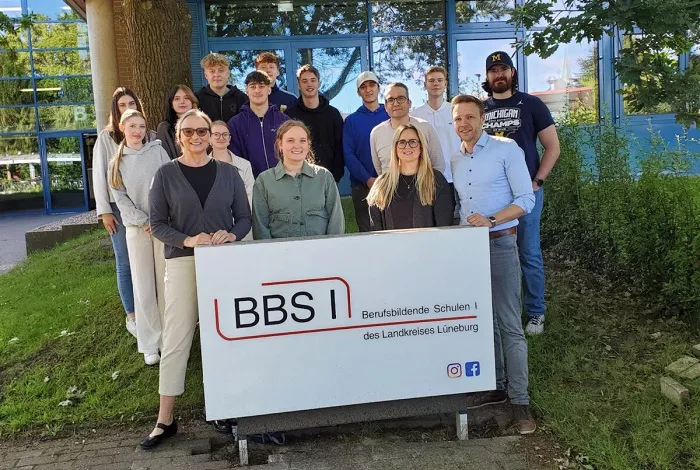The Virtual Tandem Conversation project at the University of Maryland, Baltimore County (UMBC) has been reshaping the way students from the U.S. and Germany connect. This unique initiative, born during the COVID-19 pandemic, has not only enhanced language skills but has also fostered personal connections across continents.
Rebecca Smith, a UMBC student, had the opportunity to experience this connection firsthand. While visiting Normandy, France, she made a detour to Lüneburg, Germany, to meet her tandem partner, Gertrud Krause-Traudes, after three semesters of virtual conversations. Their friendship, built on shared interests in language and music, blossomed through regular virtual exchanges in both German and English.
A Global Language Exchange Initiative
The Virtual Tandem Conversation program was founded by Susanne Sutton, a teaching professor of German, and Talke Macfarland, a visiting lecturer at UMBC’s Department of Modern Languages, Linguistics, and Intercultural Communication. Their goal was to provide a platform for students learning German at UMBC to converse with German students learning English, enhancing their language skills while promoting cross-cultural understanding.
“We started with a call for participants through the International Center at Leuphana University Lüneburg,” says Sutton. This simple step generated 35 initial applicants, and the program has since expanded, now involving partnerships with additional universities, including the University of Kassel and BBS-1 Wirtschaftsgymnasium, a business vocational high school.
Bridging Cultures and Enhancing Language Skills
Smith, a professional harpist who returned to academia through UMBC’s Golden ID Program, joined the tandem project in 2023. She connected with Gertrud Krause-Traudes, a German tour guide, and quickly developed a strong bond. Their shared love for music and languages became the foundation of their lasting friendship.
Smith reflects, “This experience has allowed me to not only improve my German but also to connect with someone from another country in a meaningful way. It’s like diplomacy at its best.”
The tandem conversations are designed to be student-driven, taking place outside of the classroom at times that work best for each pair. The program encourages students to engage in various activities, such as discussing cultural topics, sharing music, or even playing video games together. This informal approach helps students immerse themselves in the language and culture in a more natural setting.
The Impact on Fluency and Cultural Understanding
The results of the tandem program extend beyond language fluency. Dawn Nichols, a faculty partner from the University of Kassel, notes the valuable cultural exchanges that occur. Students learn day-to-day language and expressions that often aren’t covered in textbooks. This helps them better understand not only the language but also the nuances of American and German cultures.
Liana Grosko, a geography and environmental systems junior at UMBC, initially felt apprehensive about participating due to her limited German skills. However, after several months of tandem conversations with her German partner, Malin Heinrich, she saw a significant improvement in her fluency. “This experience has been incredibly rewarding, both in terms of language learning and building a deep cross-cultural friendship,” Grosko says. She later had the opportunity to meet Heinrich in Munich, further strengthening their bond.
Breaking Stereotypes and Expanding Perspectives
One of the most powerful outcomes of the program is its role in breaking down stereotypes about both countries. As students from both sides share their personal experiences, they begin to see each other as individuals rather than as representatives of national stereotypes.
Nichols observes, “The program helps students in Germany see beyond the typical images of America. It puts a human face to the abstract idea of the U.S. and fosters empathy and understanding.”
The success of the program is evident in the many students who have gone on to take their experiences beyond the virtual realm. Rebecca Smith, for instance, plans to visit Vienna to reconnect with a former classmate and German teacher in Hamburg, Germany. The program has also inspired other students, such as Emma Gebhard ’23, a psychology major, to apply for the prestigious Congress-Bundestag Youth Exchange for Young Professionals, a program that offers Americans the chance to live and work in Germany.
Looking Ahead
The Virtual Tandem Conversation project continues to grow, bringing people from different cultures closer together. As students meet in person or continue their virtual exchanges, the impact of this program is undeniable. The connections forged through shared language and culture will continue to shape the futures of all involved, creating lasting friendships and fostering a deeper understanding between the U.S. and Germany.
As Gertrud Krause-Traudes, a participant from Germany, says, “This program has allowed me to form a real friendship with Liana, one that will last beyond the project. It has been a rewarding and life-changing experience.”


